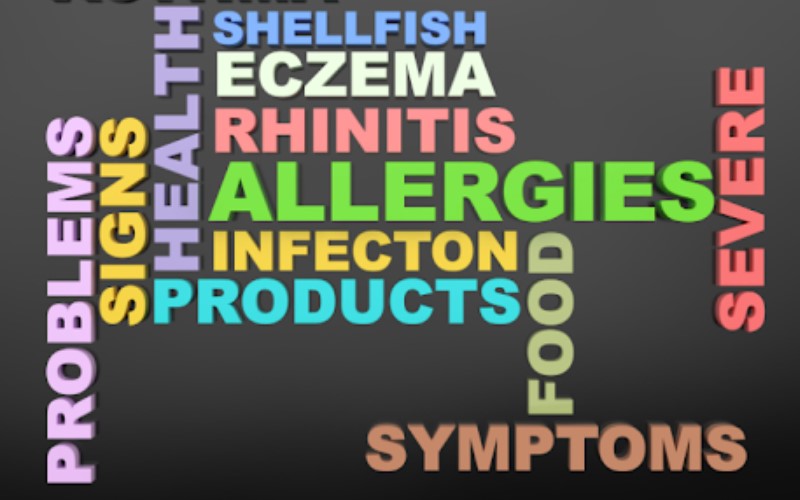Seafood has long been recognized as a delicacy, with wonderful flavors and culinary different cultures enjoying meals all around the world. From delicious shrimp scampi to flawlessly grilled salmon, the world of seafood has a wide variety of meals to delight even the most discriminating palates. However, underlying this oceanic abundance comes a less appealing reality: seafood allergies.
Enjoying a seafood feast is a gastronomic thrill for many, but for some, it may be a dangerous health hazard. Seafood allergies, like any other food allergy, can cause significant concern and difficulty, affecting not just what people consume but also how they go about their everyday lives.
In this blog post, we explore the complex state of seafood allergies, examining the common culprits, the challenges that they present, and the benefits of properly dealing with them. We’ll also give you vital tips on how to deal with seafood allergies, including seafood allergy treatment, cures, precautions, and methods to keep you safe and enjoying your cuisine. If you suspect an allergic reaction, consider a seafood allergy test for accurate diagnosis and personalized guidance.
Various Types of Seafood Allergies
Understanding seafood allergies is crucial, and it’s essential to recognize the diverse allergic reactions they can trigger:
Fish Allergy
A sensitivity to proteins found in fish muscle, such as parvalbumins. Common causes include salmon, tuna, and cod. If you suspect a fish allergy, consider a seafood allergy test to identify specific triggers.
Shellfish Allergy
This is categorized into two groups: crustaceans (shrimp, crab, lobster) and mollusks (clams, mussels, oysters). Both can induce a range of allergy symptoms. If diagnosed, appropriate seafood allergy treatment is necessary for managing symptoms effectively.
Understanding the nuances of seafood allergies is vital, and early detection through a seafood allergy test can pave the way for timely and appropriate seafood allergy treatment.
Remedies for Seafood Allergy
Managing seafood allergies requires a multifaceted strategy:
Consult an Allergist
Seeking expert help is critical for proper diagnosis as well as personalized advice. If you suspect a seafood allergy, schedule a comprehensive seafood allergy test with an allergist to determine the specific allergens affecting you.
Avoidance
The most efficient strategy to treat seafood allergies is to avoid all seafood products. Your allergist can provide guidance on creating a personalized seafood allergy treatment plan tailored to your specific needs.
Epinephrine Auto-Injector
Individuals with severe allergies should carry an epinephrine auto-injector and be familiar with how to use it in an emergency. This is a crucial component of any comprehensive seafood allergy treatment plan.
Label Reading
Examine product labels carefully, as marine elements may be concealed under numerous names. This practice is essential for effective seafood allergy management. Understanding how to interpret food labels is a vital aspect of your overall seafood allergy treatment strategy.
What to Do If You Have Allergies
Immediate action is required in the unfortunate event of an allergic reaction:
Use Epinephrine
If you have a prescribed epinephrine auto-injector for your seafood allergies, use it right away.
Seek Medical Attention
Even if symptoms appear to improve, it is critical to seek immediate medical attention for proper seafood allergy treatment. If you haven’t undergone a seafood allergy test, consult with a healthcare professional to assess your condition accurately.
The Benefits of Managing Seafood Allergies
The advantages of effective seafood allergy management, including proper seafood allergy test and seafood allergy treatment, are numerous:
Increased Safety
Food allergy awareness and careful food handling techniques significantly minimize the likelihood of allergic responses.
Healthy Substitutes
For people who refuse seafood, there are numerous alternative protein sources available.
Improved Quality of Life
Individuals with seafood allergies can live fulfilling lives without continual fear of accidental exposure with proper treatment.
Finally, shellfish allergies, while difficult to manage, are manageable. Whether you’re a seafood avid looking to learn more about the risks or someone suffering from seafood allergies, see an allergist for personalized advice. You may confidently go through the world of seafood while enjoying delicious, allergen-free meals if you understand the complexities of seafood allergies, their downsides, and the benefits of efficient management.
Finally, to ensure that your culinary pleasures are not damaged by concerns about seafood allergies, consider choosing a reliable seafood factory store that values quality and allergen management. Your food safety and enjoyment should always come first.






